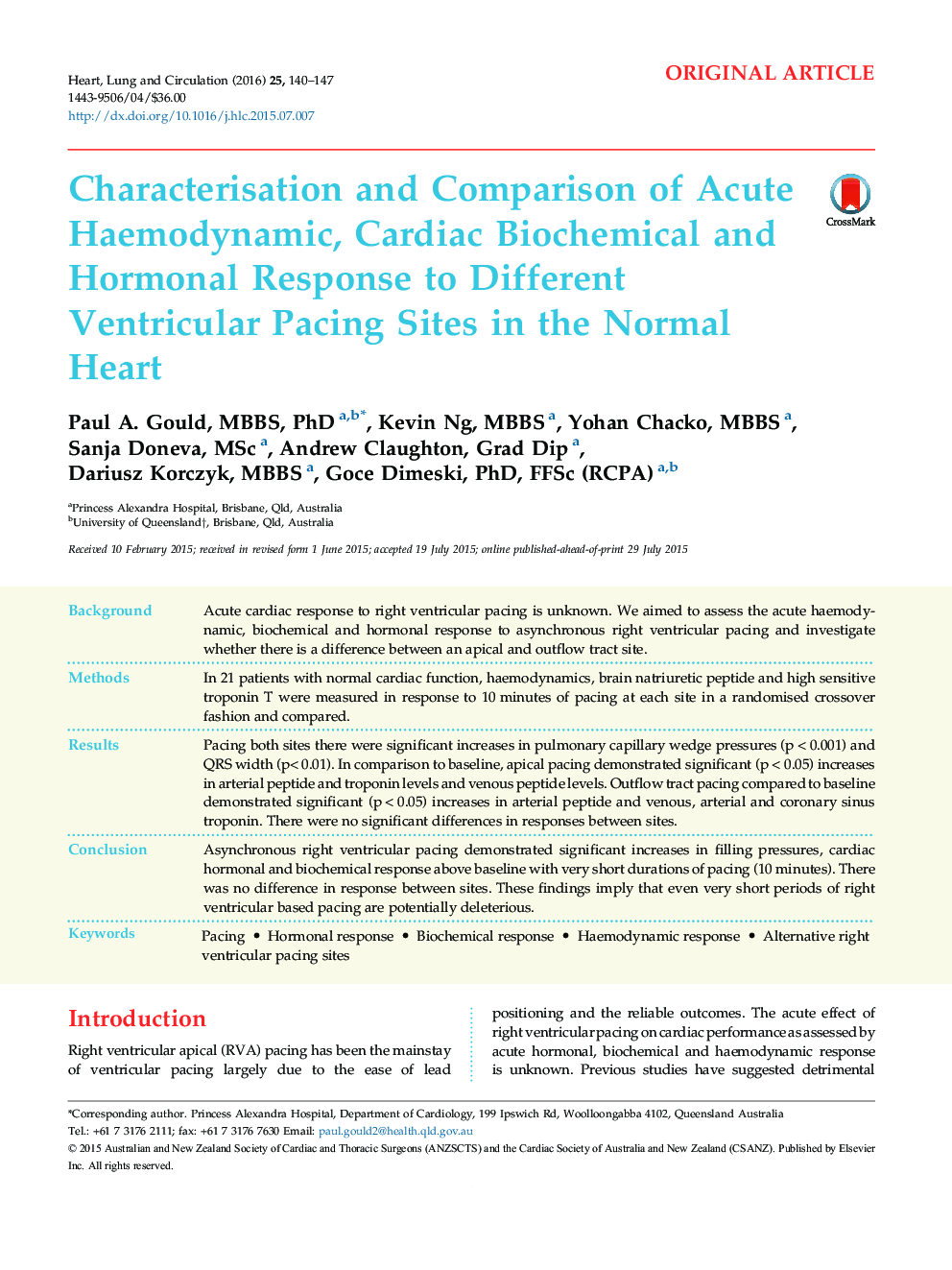| Article ID | Journal | Published Year | Pages | File Type |
|---|---|---|---|---|
| 2916882 | Heart, Lung and Circulation | 2016 | 8 Pages |
BackgroundAcute cardiac response to right ventricular pacing is unknown. We aimed to assess the acute haemodynamic, biochemical and hormonal response to asynchronous right ventricular pacing and investigate whether there is a difference between an apical and outflow tract site.MethodsIn 21 patients with normal cardiac function, haemodynamics, brain natriuretic peptide and high sensitive troponin T were measured in response to 10 minutes of pacing at each site in a randomised crossover fashion and compared.ResultsPacing both sites there were significant increases in pulmonary capillary wedge pressures (p < 0.001) and QRS width (p< 0.01). In comparison to baseline, apical pacing demonstrated significant (p < 0.05) increases in arterial peptide and troponin levels and venous peptide levels. Outflow tract pacing compared to baseline demonstrated significant (p < 0.05) increases in arterial peptide and venous, arterial and coronary sinus troponin. There were no significant differences in responses between sites.ConclusionAsynchronous right ventricular pacing demonstrated significant increases in filling pressures, cardiac hormonal and biochemical response above baseline with very short durations of pacing (10 minutes). There was no difference in response between sites. These findings imply that even very short periods of right ventricular based pacing are potentially deleterious.
